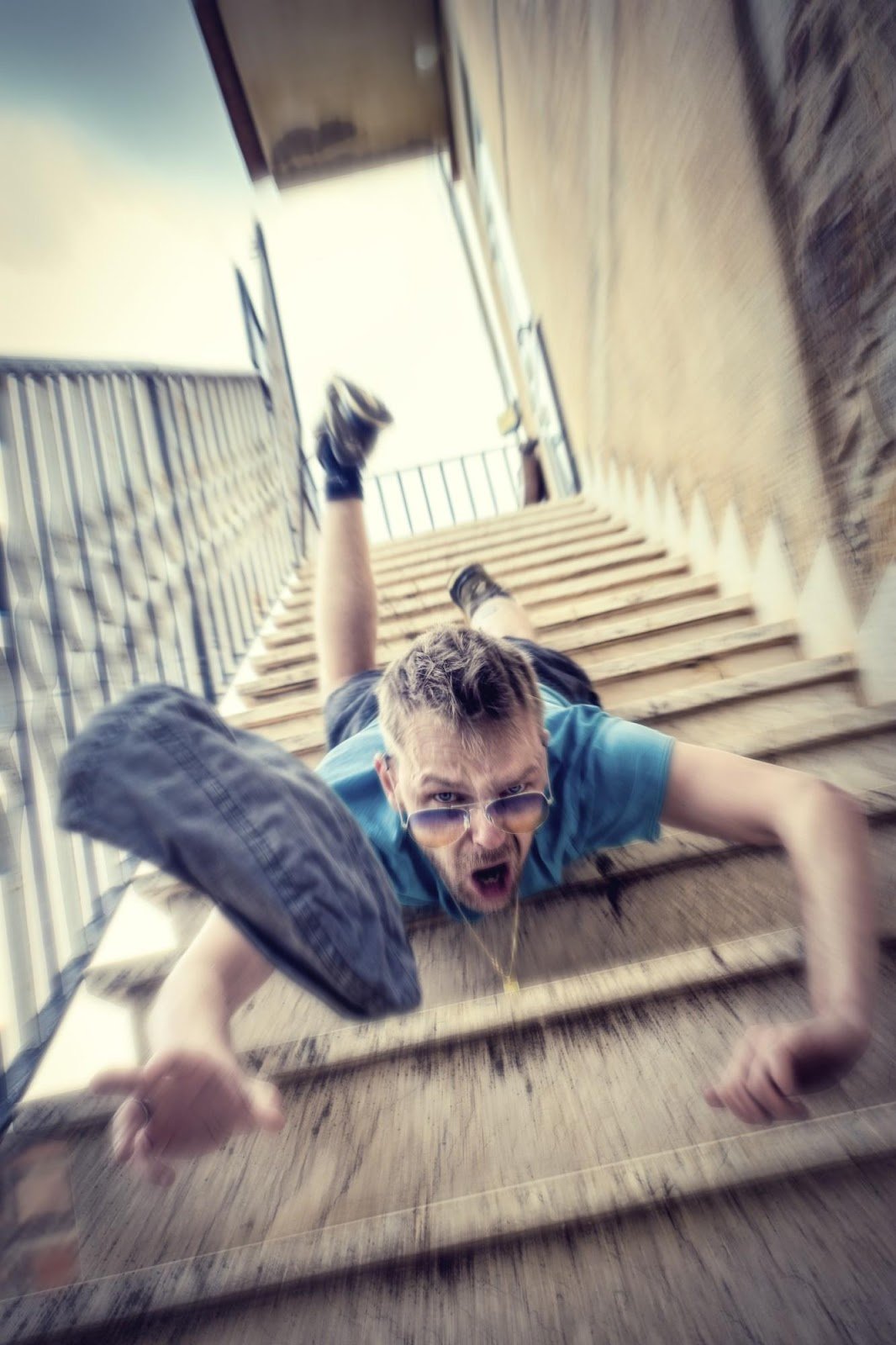
Best Foot Forward: Understanding the Danger of Falling Down the Stairs
Many people believe that falling is reserved for the elderly. However, 70% of fall injuries happen to people younger than 65 years old. In recent years, hospitals have also recorded record numbers of people falling.
So what are some of the consequences that can come with a slip and fall injury? How serious can they be?
Keep reading for a full breakdown of how falling down stairs can have implications for your health.
What Can Cause You to Slip and Fall?
If fall injuries are becoming more and more prevalent, what is causing the numbers to increase?
Depending on where you live, weather can impact the likelihood that you’ll fall. Studies have shown that during winter and periods of high precipitation, the rate of fall injuries can increase by up to 70%. If the region you live in experiences blizzards or rainstorms, make sure you make an effort to be extra careful.

Underlying health effects can also cause people to fall. Although these conditions do generally affect older people more often, younger people are not immune. Certain medications and common problems such as dehydration can also increase your susceptibility to falling.
If you do experience a fall due to the negligence of another person, consider hiring a personal injury lawyer. Visit brockmaninjurylawyer.com for a reputable Georgia law firm.
What Are Some Potential Injuries?
Depending on the severity of the fall, the consequences can either be mild or severe. If you think that you feel fine after falling, it’s still important to assess your body to ensure there aren’t any serious problems.
One common problem that can accompany falling down stairs is hitting your head. As your head is the most delicate part of your body, it’s crucial to go to the doctor even if you don’t notice any health-related effects. You may have a concussion and not realize it.
Signs of a concussion can include headache, nausea, confusion, dizziness, and fatigue. If you don’t go to the hospital to receive treatment, the effects of a concussion can last for a long time.
Another area on the body that falling down stairs often affects is your back. If you fall and land on your back, be careful when getting back up. If the pain doesn’t subside after a few days, seek medical attention. In some cases, your body may require physical therapy to return to normal.
What Should You Do After You Fall?
After you fall, there are some steps you should take to ensure that the fall hasn’t compromised your health. These will vary depending on the specifics of the injury.
If you’re experiencing minor pain or aches after slipping and falling, the pain should subside in a few days. To speed up the recovery process, you can try applying an ice pack and taking some over the counter medication. You should also ensure that you’re resting enough for your body to heal.
However, if the pain doesn’t dissipate after several days or weeks, it’s important to see a medical professional to get to the bottom of the injury. This includes minor pain, as it’s an indication that your body is unable to heal on its own.

Strains or sprains are one common injury that can be a result of a fall. This can lead to neck pain, which in turn can be an indication of damage to your spine. As this can result in paralysis, it’s important to see your doctor.
Consider Visiting a Professional
As mentioned, it can be a good idea to visit a medical professional even if the injuries appear to be minor. It’s better to be safe than sorry.
Although at-home remedies such as ice packs can be effective and a good idea, a doctor is the only person that will be able to assess what has happened. Instead of waiting to see what happens next, consider being proactive. Patients who act early are more likely to heal faster than those who put it off.
A doctor will also be able to recommend a path to recovery. For some people, this may mean physical therapy. A physical therapist will work with you by giving you an exercise plan. This will strengthen the damaged area of your body, helping it recover faster.
In other serious cases, surgery may be the recommended option. If your doctor does recommend an operation, take their advice to heart.
Although it can be a hassle to undergo and recover from, consider the consequences of not doing it.
How Can You Prevent Falling?
It’s clear that falling can have serious consequences on your health. So what can you do to minimize the risk of it happening?
One thing that you can do is ensure that your home is neat, tidy, and free of clutter. Many people trip over simple household objects. By removing clutter, particularly around stairs and hallways, you’ll ensure that you don’t trip.
If you’re someone who wears loose or baggy clothing, make sure that it doesn’t drape down to your feet and cause you to trip. When walking up or down stairs, hold loose and flowy pieces of clothing in your hand.

During wintertime, make sure that you are extra careful. Even if an area doesn’t look icy, it can still be slippery. Hold railings whenever possible, and take your time when using stairs.
Pay Attention to Your Surroundings and Stay Safe
Although falling down stairs can seem like an unlikely event that won’t happen to you, it happens to many young and healthy people. If you experience a slip and fall injury, following this guide will help you take the appropriate steps to protect your health.
Do you have any other tips on how to treat injuries from falling down stairs? Let us know!
If you enjoyed reading this article, don’t forget to check out some of our other blog posts for more tips and guides.




